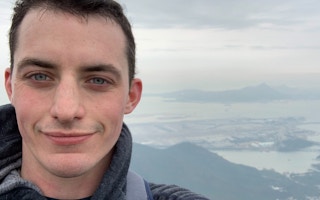Daniel Bergin has researched the illegal and unsustainable wildlife trade, in both physical markets and online, for the past 10 years in countries such as China, Japan, Myanmar, Belgium, Nigeria, Thailand, United Kingdom, United States, and Vietnam. His most recently published paper, in the journal Nature, examined how to persuade people in countries where the trade flourishes to avoid consuming wildlife products, and in turn reduce the likelihood of another pandemic.
To continue reading, subscribe to Eco‑Business.
There's something for everyone. We offer a range of subscription plans.
- Access our stories and receive our Insights Weekly newsletter with the free EB Member plan.
- Unlock unlimited access to our content and archive with EB Circle.
- Publish your content with EB Premium.
Reducing a lucrative trade estimated to be worth between US$7 and US$23 billion a year calls for a two-pronged approach, Bergin says: enforcing and improving existing wildlife trade laws, and reducing consumer demand by changing social norms around the acceptability of consuming wild animals. Doing only one of these things greatly limits the effectiveness of conservation, he says.
Bergin spent time as a safari guide in South Africa before completing his doctorate at Oxford Brookes University in the United Kingdom where he continues to collaborate with the Oxford Wildlife Trade Research Group on wildlife trade projects. Having spent several years focusing on the supply side of the wildlife trade – visiting wildlife markets and interacting with sellers to understand more about the dynamics of trade – Bergin has shifted his focus to consumer demand reduction.
He is now associate director at GlobeScan, a global insights and advisory consultancy. His job involves mining information for non-governmental organisations to use in campaigns that will encourage behavioural change to help lessen or stop the trade in, for example, elephant ivory and pangolin scales.
“
Stopping wildlife at the borders is a necessary part of reducing the wildlife trade, but so long as there is a demand, the trade will continue.
Here, Bergin offers a glimpse into his typical working day trying to understand why people consume wildlife, and what can be done to stop them.
7.30am: For most of the year, living in Hong Kong means getting out of the house early if I want to go for a run before it gets too hot. Fortunately, I live near the waterfront and use any available sea breeze to my advantage.
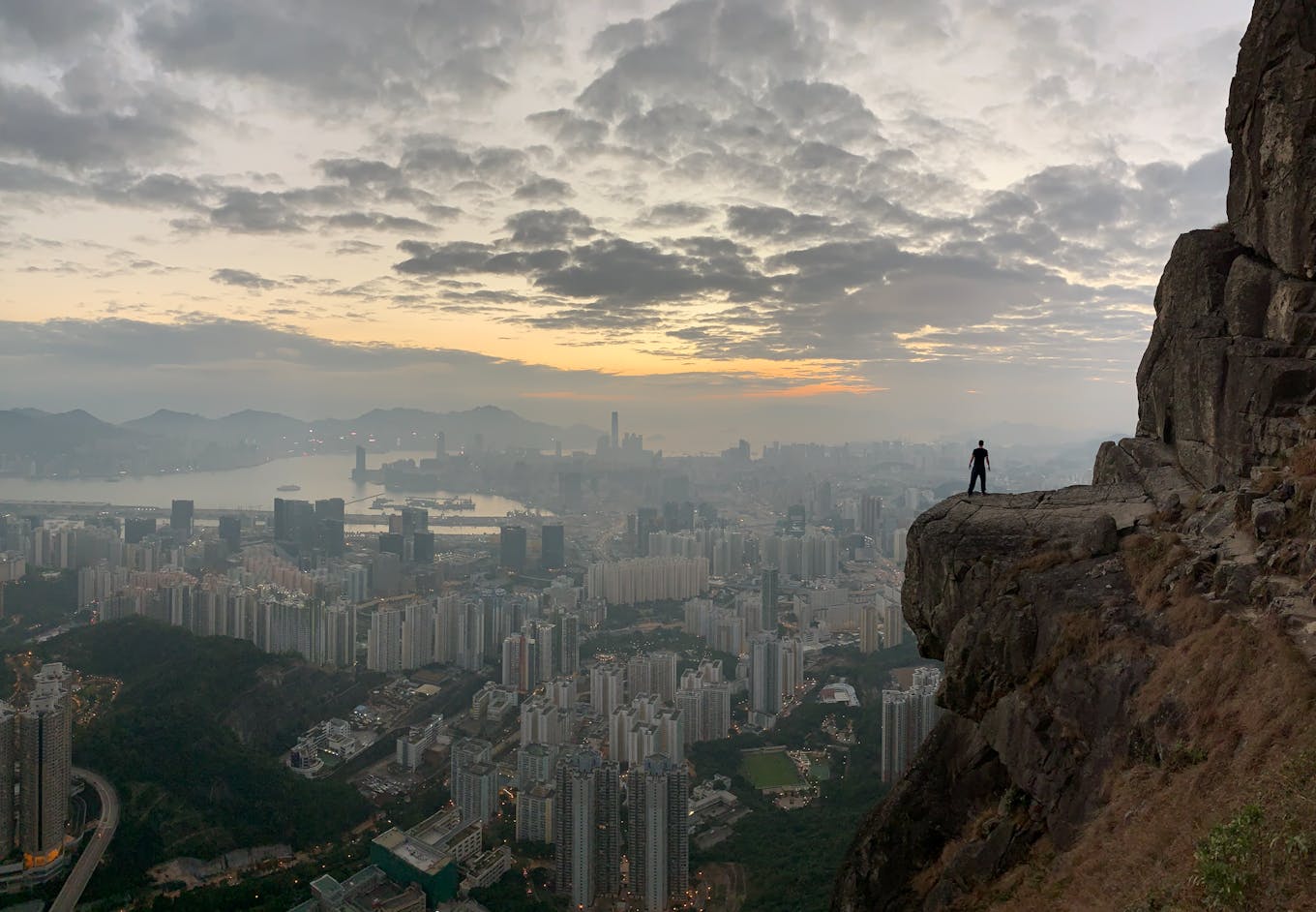
Daniel Bergin on a walk around Hong Kong. Image: Daniel Bergin
8.30am: Breakfast and time to check my emails. We have offices all around the world and frequently collaborate on projects with colleagues in the Americas, Europe, or India. This means logging on at the end of other people’s workdays, which means a lot of unread emails. I get contacted about all sorts of topics, from new methods for asking sensitive questions, to new alternatives to wildlife products.
8.50am: Leave for the office. For most of the past two years, we have been lucky enough to avoid lockdowns, so we still work in the office for the most part. This suits me. I like the separation between home and work and I enjoy working directly with other people.
9am: A lot of the work we do is focused on reducing consumer demand for wildlife products, and so we need to carefully design questionnaires to identify attitudes and intentions around the wildlife trade to feed into campaign design. We design questions so that people do not implicate themselves in illegal activity, but will still provide us with actionable results.
11am: Once we get the data back, we help our clients design campaigns. To do this, we analyse and interpret the data we receive and look for trends and segments of the population that may be more likely to purchase wildlife products.
With our annual ivory studies, we saw a dramatic drop in ivory purchase after China banned its sale at the beginning of 2018. This trend has continued over the years, but we identified a group of diehard buyers whose past purchase rates and future intention to purchase ivory are higher. Reaching these hard-to-influence people is an ongoing task. Stopping wildlife at national borders is an important part of reducing the trade, but so long as there is a demand, the trade will continue. So we need to challenge and change societal norms to reduce demand.
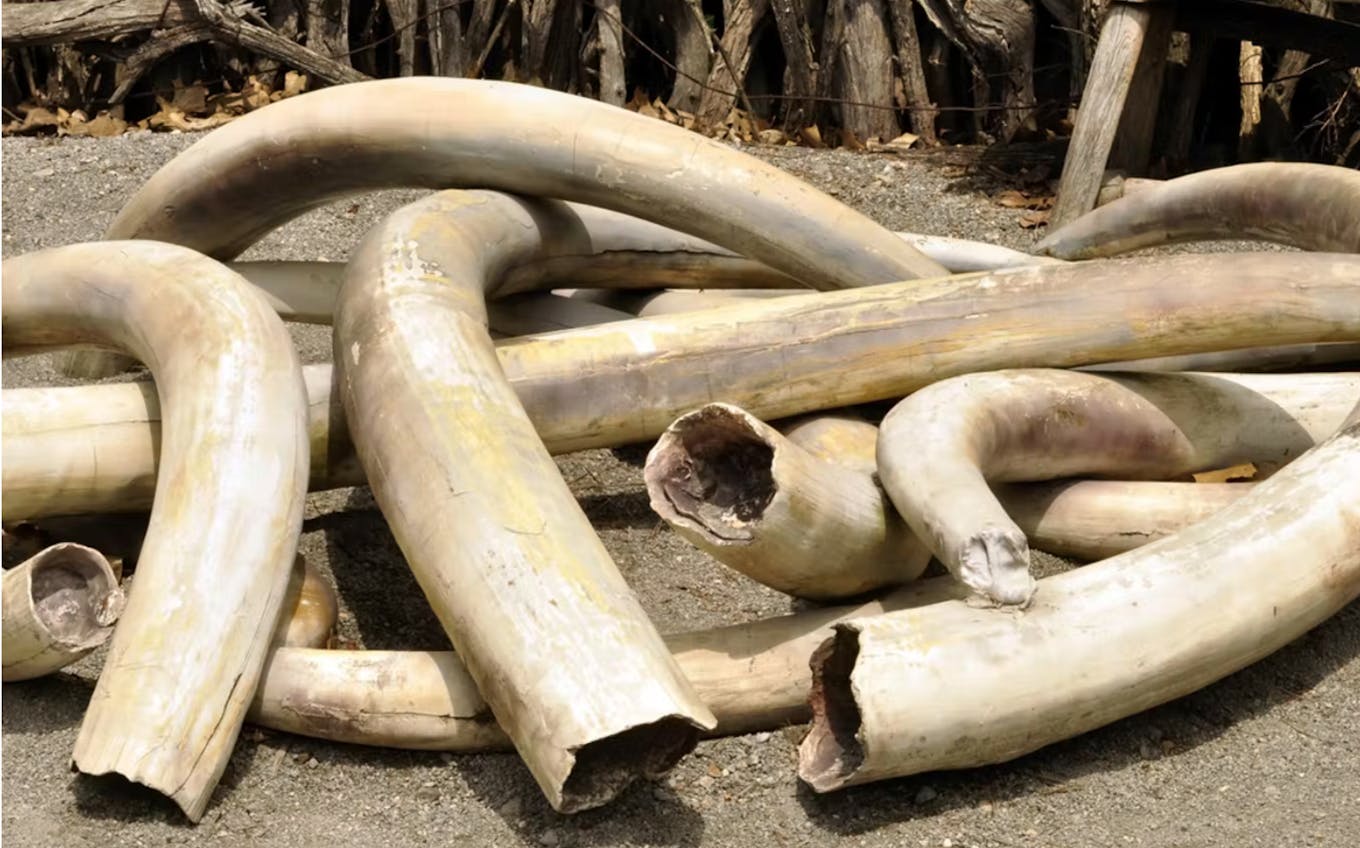
Seized elephant tusks. China outlawed the ivory trade in 2018. Image: Shutterstock
The most successful campaigns I have worked on focussed on ivory. Changing public mindsets can’t be done overnight. A sustained, targeted approach is necessary to shift perceptions. We do annual surveys and have been able to see the decrease in ivory purchase over time. There are of course other factors besides the campaigns that influence buying behaviour, but the feedback we receive from consumers when they are exposed to the campaigns is overwhelmingly positive — even from diehard buyers who value ivory very highly. We tested certain messages on different groups and found that the diehard buyers responded to certain elements — showing living elephants rather than poached elephants for example — over others. The campaigns were then designed and updated with this in mind.
1pm: Lunch with my colleagues. We are a relatively small team, so we tend to have lunch together if we are in the office. Deciding what to eat each day is usually a 10-minute undertaking. There’s so much variety in Hong Kong.
2pm: Afternoons are spent on reporting. The data we work with and the analyses we conduct can be complex, so it is important that we turn insights into a digestible format. We highlight relevant findings and propose actionable steps that organisations can effectively use. We have to make sure they are comprehensive and understandable. The slide below shows that people around the world tend to agree that the closure of high-risk wildlife markets will be effective in preventing future pandemics.
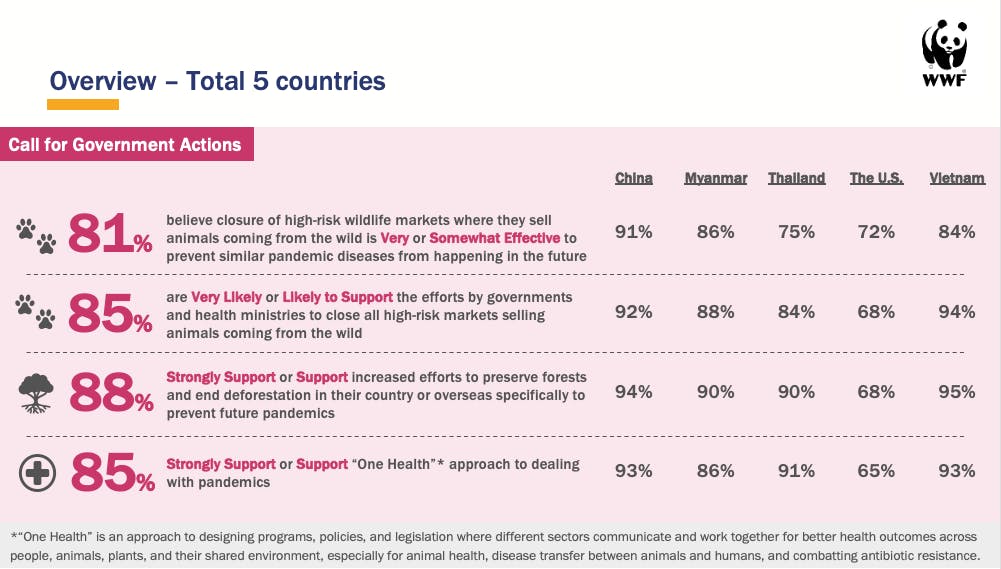
Slide showing that most people in China, Myanmar, Thailand, the United States and Vietnam support the closure of wildlife markets as a measure to prevent future pandemics. Image: WWF
4pm: Not all my projects concern wildlife. A recent project involved interviews with decarbonisation experts. These interviews are an extremely valuable data collection method as they draw on a lot of experience and the insights can help shape policy. For example, the European Union has submitted a proposal that would add a charge to some imported goods (cement, electricity, fertiliser, iron and steel, and aluminum) to ensure that the price of imports accurately reflects their carbon content. Experts across Asia Pacific are wary of this additional cost as they feel it could unfairly limit their ability to trade internationally. The EU, however, sees this border adjustment as a necessity if they are to continue to implement decarbonatisation measures within the bloc without manufacturing moving elsewhere, where regulations are less strict.
5pm: It’s time to connect with the London and Paris teams. We hand over work so that it can continue uninterrupted.
6pm: Go home. Despite the heat for most of the year, Hong Kong is a very walkable city. My apartment backs onto a walking trail that continues all around Hong Kong Island. So despite the built-up environment, it is easy to get out into nature, and maybe spot snakes, porcupines, monkeys, or wild boars if I’m lucky.
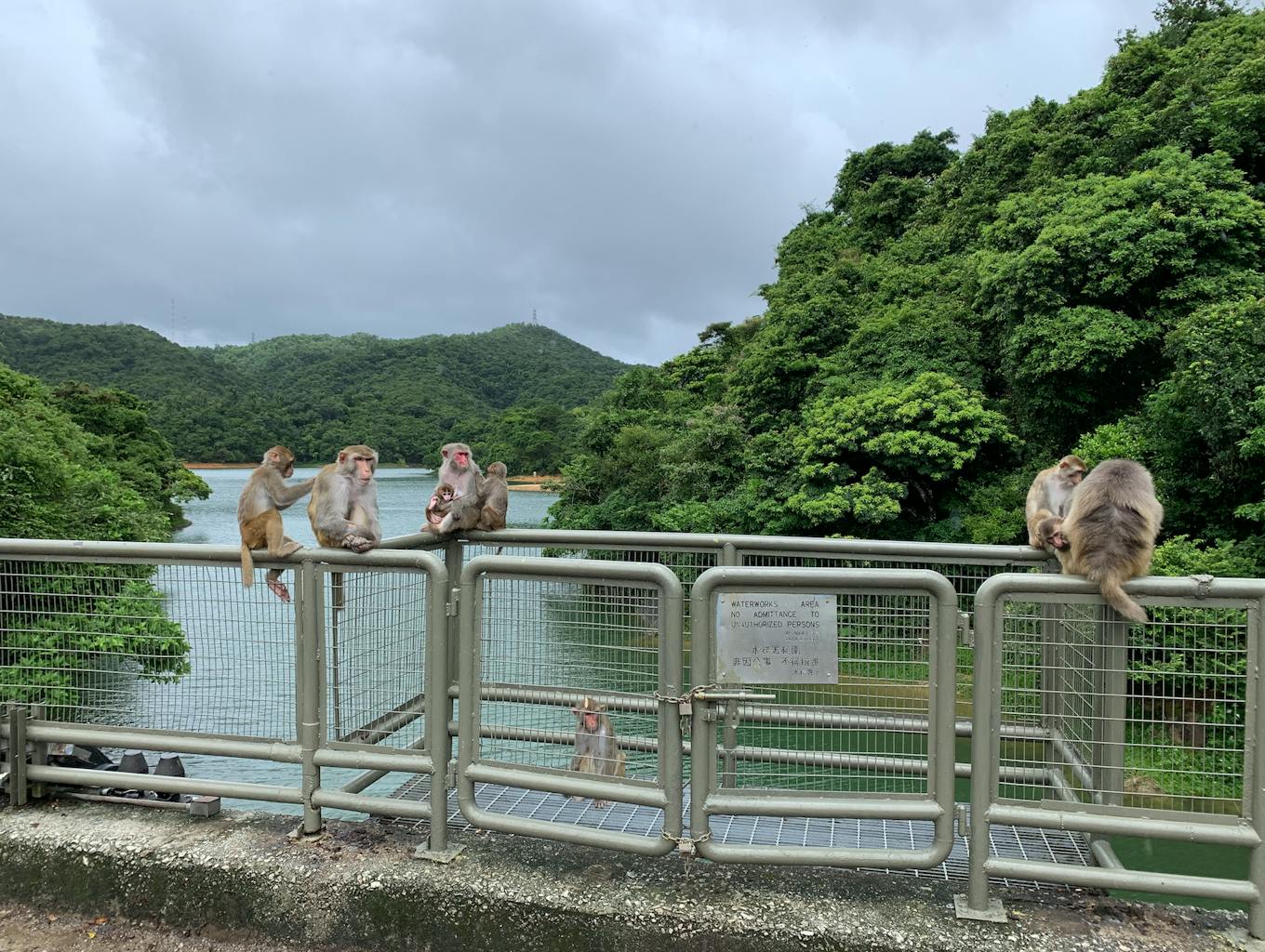
Monkeys on the path in Hong Kong. Image: Daniel Bergin
9pm: The Americas come online. A few times a week, I have evening calls. This is one of the challenges of being part of global team, but it is also a benefit as we are exposed to a range of perspectives. People’s interactions with wildlife differ greatly depending on where they were raised. Hearing about people’s stories of, for example, visiting muti (a traditional medicine practice in Southern Africa) markets and what they experienced there helps feed into our questionnaires about the wild meat trade in Nigeria in West Africa.
11.30pm: I turn in for bed. Hong Kong may never sleep, but I certainly have to!

